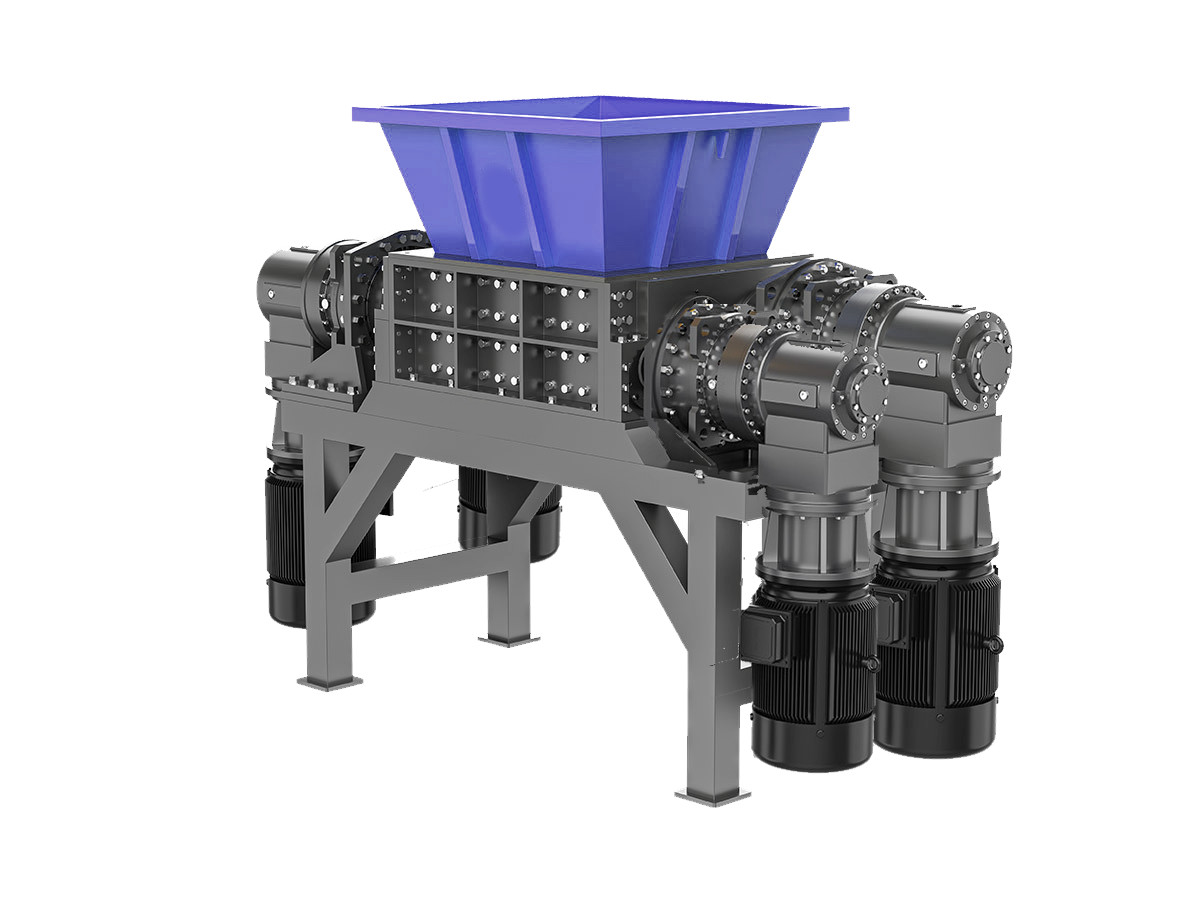Solid Waste Four Shaft Shredder

The solid waste four shaft shredder is an advanced shredding machine designed for high-efficiency waste reduction. Equipped with four interlocking shafts and multiple cutting blades, this shredder is capable of handling complex waste streams, including bulky, heavy, and mixed materials.
Unlike single and double shaft shredders, four shaft shredders offer a finer, more controlled shredding process by utilizing additional cutting stages. The two primary shafts perform the initial breakdown, while the secondary shafts further refine the material into uniform and manageable pieces.
These shredders are widely used in industrial and municipal solid waste processing, where precision shredding and thorough size reduction are required. Their versatility, reliability, and ability to handle tough materials make them a key component in recycling and waste management operations.
How a Solid Waste Four Shaft Shredder Works
The shredding process in a four shaft shredder starts when waste material is loaded into the hopper. The two upper shafts grip and break down the material, initiating the first stage of shredding. The partially shredded material then moves downward to the secondary shafts for further size reduction.
This dual-stage cutting mechanism ensures thorough shredding, achieving finer and more consistent output sizes. Unlike two shaft shredders, four shaft models use additional cutters to improve cutting efficiency and enhance material flow through the system.
A built-in screen allows operators to control the final particle size. Only properly shredded material exits the system, while oversized fragments are recirculated for further processing. This makes four shaft shredders ideal for applications requiring precise material breakdown.
Key Features of Solid Waste Four Shaft Shredders
Four shaft shredders are designed with advanced features to maximize efficiency and durability. One of the most important features is their multi-stage cutting system, which delivers superior shredding performance compared to single or double shaft models.
Another key feature is the automatic overload protection system. If the shredder encounters unshreddable objects or excessive resistance, it automatically reverses shaft rotation to prevent damage and avoid downtime.
Additionally, these shredders come equipped with high-strength cutting blades made of wear-resistant materials, ensuring long-lasting performance even when processing abrasive waste. Their modular design also allows for easy maintenance and blade replacement.
Applications of Solid Waste Four Shaft Shredders
Solid waste four shaft shredders are widely used in various industries that require precise and efficient waste processing. Their ability to handle complex and mixed waste makes them essential for many recycling and disposal operations.
In municipal solid waste management, these shredders process household waste, mixed debris, and bulky items such as furniture and large plastic containers. The fine shredding ensures easier sorting and recycling of valuable materials.
Industrial applications include shredding hazardous waste, medical waste, and electronic waste. Four shaft shredders are particularly useful in processing materials that require strict control over output size, such as confidential documents, expired products, and sensitive industrial materials.
Advantages of Using a Solid Waste Four Shaft Shredder
One of the main advantages of a four shaft shredder is its ability to achieve precise and uniform shredding, making it ideal for industries that require controlled waste reduction. The multi-stage cutting mechanism ensures finer and more consistent output.
Another significant benefit is its high efficiency in handling difficult and bulky waste materials. Compared to two shaft shredders, four shaft models provide greater throughput and reduced risk of clogging, improving overall operational efficiency.
Additionally, the durability and robust design of four shaft shredders ensure long-term performance with minimal maintenance. Their energy-efficient operation and automatic overload protection make them a cost-effective and reliable solution for businesses and municipalities aiming to optimize waste management.